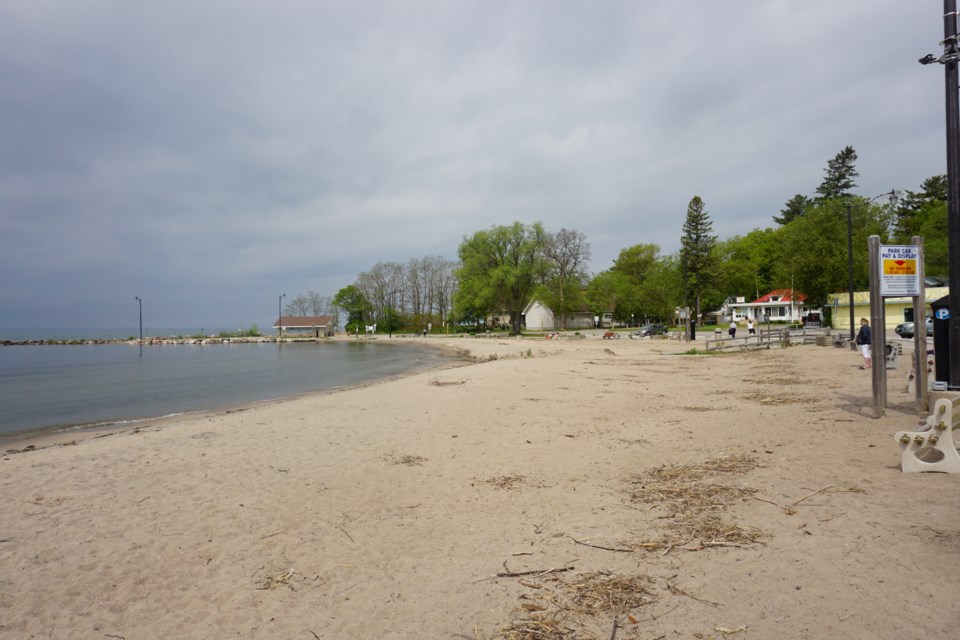Politics
Cottage Owners Criticize STR Regulations for Plummeting Values

Cottage owners in Tiny Township are expressing concern that new regulations governing short-term rentals (STRs) are contributing to declining property values and a slowdown in sales. Residents like Susan Barbi argue that the financial burden of compliance with municipal bylaws is forcing owners to reconsider the viability of their properties.
Barbi, who purchased a beachfront cottage near D’aoust Bay a decade ago, has experienced firsthand the challenges posed by these new rules. She and her husband intended to rent out their cottage when not in use but have faced increasing obstacles. “The reason cottage prices have gone down and there is a lot of inventory on the market is because of the rules imposed on owners regarding short-term rentals,” she stated.
Barbi highlighted that the regulations, which she describes as “a sea of red tape,” include significant costs such as a $1,750 annual licensing fee, a $300 electrical inspection, and increased liability insurance. The couple has been renting their property to families seeking a peaceful getaway, but the restrictions have made it increasingly difficult to maintain their income stream.
The situation worsened this year when the township reduced the number of STR licenses from approximately 900 to just 300. Barbi noted that when they applied for their license this year, they discovered that only 150 applications were being accepted. “We lost three weeks of potential rental income waiting for the township’s license to be approved,” she explained, emphasizing the financial strain this has placed on them.
In response to these concerns, David Evans, Mayor of Tiny Township, acknowledged that STR regulations can be challenging for property owners. He explained that the bylaws were developed following extensive public consultations to address community concerns regarding noise, parking, and safety. “My goal, and council’s goal, has always been to find a fair balance between the needs of property owners who wish to rent their properties and the rights of neighbours to enjoy their homes without disruption,” Evans stated.
Despite the mayor’s assurances, Barbi remains skeptical. She argues that the municipality’s regulations are more about generating revenue than ensuring safety. “They voice their concerns under the guise of safety issues but all it is, is a money grab,” she said. The couple’s situation reflects a broader trend where many cottage owners are struggling to cope with the financial pressures associated with these new regulations.
Barbi also pointed out that, contrary to popular belief, owning a cottage does not equate to wealth. “In our situation, it is a lot of hard work and a great financial responsibility to own a cottage,” she explained. The couple must travel two hours to maintain the property and prepare it for renters, which adds to their costs.
Mayor Evans reiterated that the STR licensing program is entirely self-funded, with fees from STR operators covering all associated costs. He emphasized that no property tax dollars are used for the program, aiming to dispel concerns about financial pressure on the community at large. “Our bylaw does not prohibit short-term rentals; it simply establishes licensing, safety and compliance standards,” he noted, asserting that the bylaw has been successful in Tiny.
As the local real estate market continues to adjust, Evans acknowledged that various factors influence property sales, including interest rates and economic conditions. While some owners may choose to sell for different reasons, he has not seen definitive evidence that STR regulations alone are driving property values down.
Barbi and others in the community hope that their experiences will prompt a reevaluation of the current regulations. “If we don’t rent it out, we honestly would have to sell it,” she warned, underscoring the financial implications for cottage owners struggling with new compliance costs. The future of cottage ownership in Tiny Township remains uncertain as the local government navigates the complexities of balancing regulation with the needs of residents.
-

 World3 months ago
World3 months agoScientists Unearth Ancient Antarctic Ice to Unlock Climate Secrets
-

 Entertainment3 months ago
Entertainment3 months agoTrump and McCormick to Announce $70 Billion Energy Investments
-

 Science3 months ago
Science3 months agoFour Astronauts Return to Earth After International Space Station Mission
-

 Lifestyle3 months ago
Lifestyle3 months agoTransLink Launches Food Truck Program to Boost Revenue in Vancouver
-

 Technology2 months ago
Technology2 months agoApple Notes Enhances Functionality with Markdown Support in macOS 26
-

 Top Stories1 week ago
Top Stories1 week agoUrgent Update: Fatal Crash on Highway 99 Claims Life of Pitt Meadows Man
-

 Sports3 months ago
Sports3 months agoSearch Underway for Missing Hunter Amid Hokkaido Bear Emergency
-

 Politics2 months ago
Politics2 months agoUkrainian Tennis Star Elina Svitolina Faces Death Threats Online
-

 Technology3 months ago
Technology3 months agoFrosthaven Launches Early Access on July 31, 2025
-

 Politics3 months ago
Politics3 months agoCarney Engages First Nations Leaders at Development Law Summit
-

 Entertainment3 months ago
Entertainment3 months agoCalgary Theatre Troupe Revives Magic at Winnipeg Fringe Festival
-

 Politics1 week ago
Politics1 week agoShutdown Reflects Democratic Struggles Amid Economic Concerns











